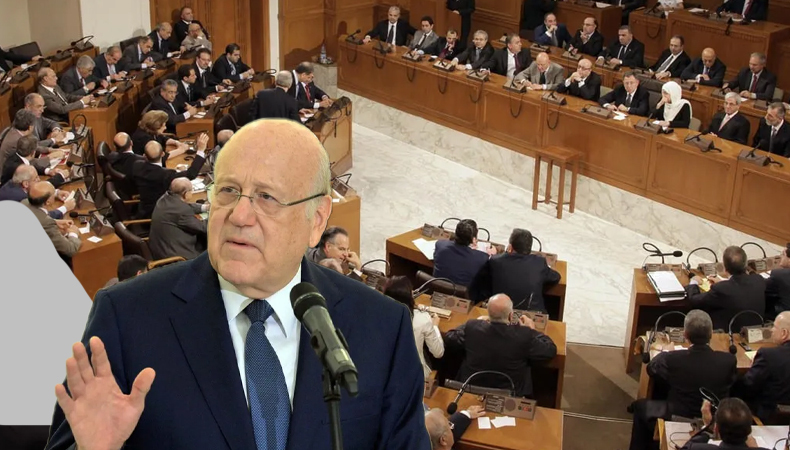Mikati calls for unity to elect new president during Cabinet meeting

The Lebanese caretaker administration had its second meeting despite the absence of a president on Wednesday. A caretaker administration does not have the authority to organise meetings to conduct the business of the nation, according to the ministers of the Free Patriotic Movement, who boycotted the meeting.
Seven of the twelve Christian pastors were among the 17 ministers that attended the meeting. Ministers from Hezbollah were allowed to attend by their leader, Hassan Nasrallah.
The ministers of defence, foreign affairs, energy, emigration, social affairs, and justice were all missing.
Amin Salam, the minister of the economy, and Walid Nassar, the minister of tourism, were convinced to go by acting Prime Minister Najib Mikati. Both are associated with the FPM, albeit neither is a formal member.
In spite of FPM’s power over the Energy Ministry, he also convinced Kamal Hayek, the chairman of the board of directors of Electricité du Liban, to attend.
Mikati, who has come under harsh criticism from the FPM for holding Cabinet meetings, claimed their sole objective was to assist residents in times of national emergency.
Read | Two YouTube activists prosecuted by Houthis for critical videos
Two Treasury advances were approved by the Cabinet. Fuel from ships that are currently waiting at sea will be purchased with the first for $62 million. On the exports, the Treasury has already been required to pay fines.
The second, for $54 million, is meant to cover the cost of upkeep for Lebanon’s power plants.
Mikati subsequently stated that the government needed to take action to safeguard food security by obtaining funding for necessities like wheat. Such demands cannot be put off for political or sectarian reasons, he said.
“Govt. actions in the future will always follow constitutional principles and partnership protection. It does not want to provoke or confront any party, he declared.
He argued that everyone in parliament must work together to find solutions to the country’s issues, including selecting a new leader.
“Everyone taking on national responsibility would be the essence of cooperation and respect for the constitution; therefore our demand to swiftly move toward consensus in order to elect a president capable of uniting the Lebanese before it is too late.”
However, political wrangling persisted as parliament prepared for an 11th try to choose a new president on Thursday.
Samir Geagea, the commander of the Lebanese Forces, charged Hezbollah and its allies with hindering the procedure.
Additionally, he said that Nabih Berri, the speaker of the parliament, was assisting the bloc in sabotaging the voting sessions in an effort to exhaust MPs and push through their favourite candidate.
Geagea declared, “We will not accept this, and we will convene with all parties to decide on a sovereign president.
The Council of Maronite Bishops urged MPs to fulfil their duties in order to save the nation from imploding.
According to the Lebanese constitution, the presidency is often held by a Maronite, but other important positions are also held by Maronites, such as those of army commander, governor of the Banque du Liban, and senior judge.
The council expressed worry over attempts to erode the identity of the country by eroding Maronite principles specifically and Christian positions generally.
Meanwhile, teachers in public schools staged sit-ins to protest their lack of pay, claiming that the situation was so dire that many of them could not afford to pay for their transportation to and from work. Donor nations have thus far declined the Ministry of Education’s requests for assistance.




